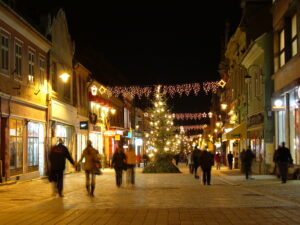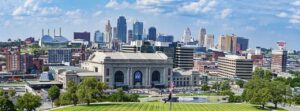Kansas City, a hub of cultural richness, economic diversity, and a steadily growing real estate market, stands as a testament to how economic trends significantly shape property values. For homeowners, investors, and policymakers, grasping these economic influencers is crucial. This blog post delves into the various economic factors that affect property values in Kansas City, highlighting the current state and future outlook of its real estate market in light of these dynamics.
Interest Rates
Interest rates hold a paramount influence over property values. Lower interest rates mean reduced borrowing costs, making mortgages more accessible and increasing demand for real estate. This demand can elevate property values. On the flip side, higher interest rates make borrowing more expensive, potentially reducing demand and causing property values to stabilize or decrease. Decisions by the Federal Reserve on monetary policy play a crucial role in shaping these rates and, by extension, the real estate market’s direction.
Economic Diversification
Kansas City’s economy, with its broad base spanning sectors such as manufacturing, healthcare, education, and technology, provides a stable foundation for the real estate market. Economic diversification ensures resilience against sector-specific downturns, maintaining employment levels and supporting property values. A thriving job market attracts residents, bolstering demand for housing and, consequently, pushing up property values.
Population Growth
Population growth is a key driver of real estate demand in Kansas City. The city has seen a steady increase in its population, drawn by job opportunities, a vibrant cultural scene, and a high quality of life. This influx of new residents fuels demand for housing, contributing to rising property values. Migration trends, influenced by broader economic conditions and lifestyle preferences, continue to impact the real estate landscape significantly.
Infrastructure and Urban Development
Investments in infrastructure and urban development projects can greatly influence property values. Initiatives such as improved transportation systems, public amenities, and commercial developments enhance the attractiveness of living and working in Kansas City, positively impacting local property values. Areas benefiting from these investments often see accelerated growth in real estate values, while regions lagging in development may experience slower growth.
Environmental Considerations and Urban Planning
In Kansas City, environmental considerations and urban planning also play a crucial role in shaping property values. Efforts to create sustainable and resilient urban environments, through green spaces, flood management, and efficient public transportation, can enhance property values by making neighborhoods more desirable. Conversely, areas facing environmental challenges or lacking in comprehensive urban planning may see constrained property value growth.
Property values in Kansas City are influenced by a multifaceted array of economic trends, from interest rates and economic diversification to population growth, infrastructure investments, and environmental planning. Despite potential challenges, Kansas City’s real estate market remains robust, driven by its diverse economy, growing population, and ongoing development projects. Understanding these economic trends is vital for anyone looking to navigate the real estate market in Kansas City, whether buying, selling, or investing.











